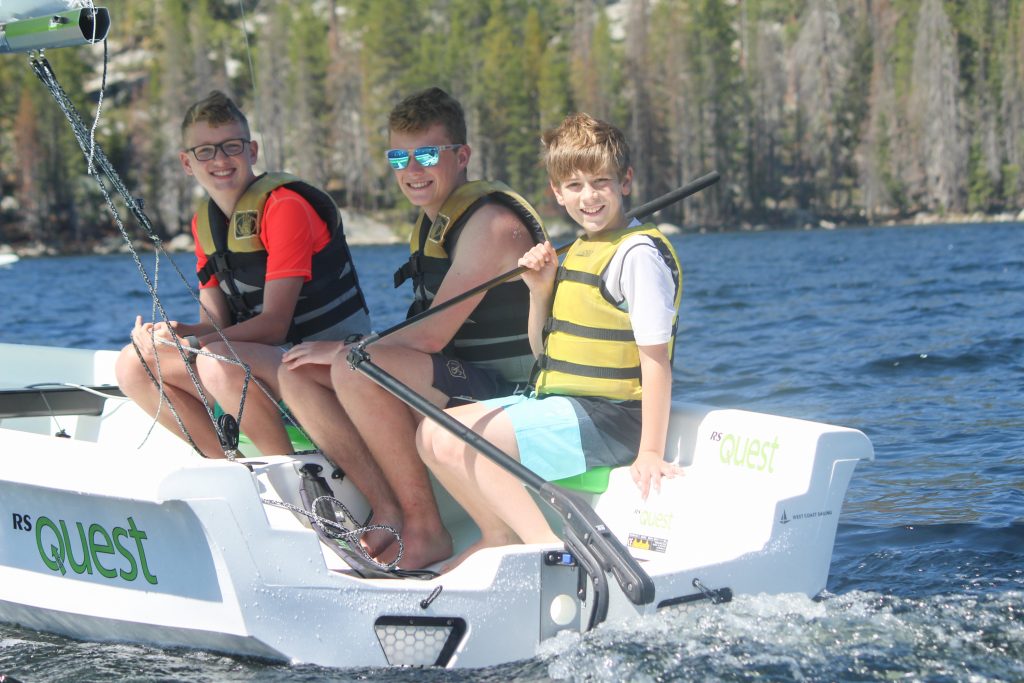10 Parenting Tips from Camp Counselors
At one time in their lives, many of the parents I know were camp counselors. Those same people have told me that their time spent as counselors was great training ground for parenting. Among other things, they learned to comfort, encourage, set goals, and resolve disputes — all things we experience daily in our lives as moms and dads.
At one time in their lives, many of the parents I know were camp counselors. Those same people have told me that their time spent as counselors was great training ground for parenting. Among other things, they learned to comfort, encourage, set goals, and resolve disputes — all things we experience daily in our lives as moms and dads.
However, not every parent has had the benefit of camp counselor training. In fact, most parents have had NO training at all. Perhaps they took a Lamaze class or two, but we all know that having the kid is not the hardest part!
I’ve often lamented that all parents should be required to go through some training, at least the same training camp counselors do (a minimum of one week at most camps). Unfortunately, that is not the case, nor is it realistic. So the best we can do for those who were never camp counselors is offer a few tried and true tips from a few outstanding folks who were:
1. Practice catching kids doing the right thing.
2. Check in with each child one-on-one every day.
3. Establish fun daily traditions: share highs & lows at dinner or bedtime, do riddles, read a book out loud, play games together, collect family memories.
4. Sing and dance together A LOT.
5. Smile and stay positive. Apologize for any crabbiness.
6. Address difficult issues privately and by focusing on the ISSUE not the child.
7. Do team-building activities like sharing goals and dreams.
8. Get unplugged and focus on face-to-face communication.
9. Get outside and get dirty.
10. Follow a predictable schedule and enforce rules consistently.
2023 Theme: Count on Me!
This year’s summer theme, chosen to help guide campers to be trustworthy and dependable friends, cabin mates, and family members, is “Count on Me.”
Our first summer theme was in 2012 when we chose the theme of gratitude. We followed that theme with kindness (Cool 2B Kind), relationship building (Creating Connections), helpfulness (Give a Hand), grit (Growing Grit), positivity (The Energy Bus), a focus on friendship (Find-a-Friend), building up others (Filling Buckets), being our best selves (Be You ), appreciating our community (Better Together), and Choosing Kindness (2022).
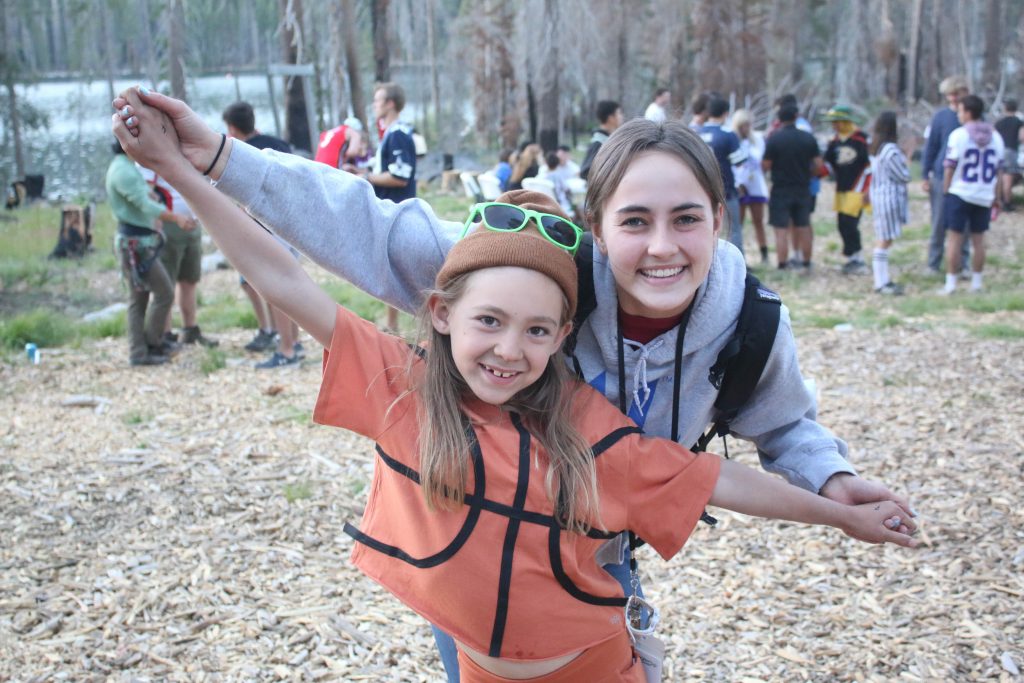 An important character trait of a good friend is being reliable, dependable, and trustworthy. We know that it’s important that our campers develop these traits. This year at Gold Arrow Camp, we will be learning how to be people our friends can count on.
An important character trait of a good friend is being reliable, dependable, and trustworthy. We know that it’s important that our campers develop these traits. This year at Gold Arrow Camp, we will be learning how to be people our friends can count on.
We’re thrilled to make our GAC community stronger by helping campers understand the importance of being a person their cabin mates, friends, and family can count on. There are many opportunities at camp to be dependable and reliable. “Counting on Me” means using our words and actions to show others they can count on us:
- Count on me to be a trustworthy friend
- Count on me to be a dependable cabin mate
- Count on me to be a responsible community member
- Count on me to challenge myself to grow at camp
- Count on me to show gratitude for others
- Count on me to be kind
- Count on me live healthy
- Count on me to stay unplugged and connect with others
- Count on me to be there when you need me
The pinwheel represents our 2023 theme. No matter which of its blades catches the smallest breeze first, it turns the whole wheel together. It takes less effort to spin as each individual part gathers more of the wind. Without all of its blades, it cannot spin evenly and efficiently. Each blade relies on the others. Working together, the pinwheel creates a mesmerizing display of beauty. It reacts to the gusts that blow its way then it gently returns to rest, ready for what the day may bring.
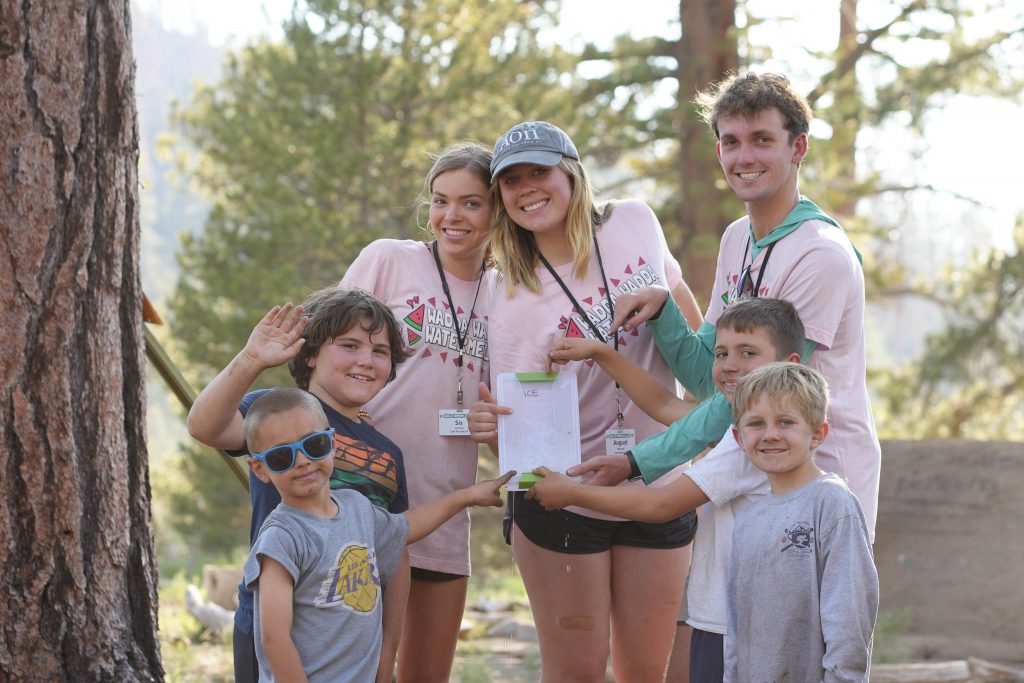 “Count on Me” builds on the work we’ve done in the areas of positivity, friendship, and kindness. The friendships we forge at camp are special for many reasons, and we know that keeping the focus on being someone others can count on will add depth and richness to our connections. It is our sincere hope that 2023’s GAC campers will take this theme home and continue to be people others can count on in their communities by being trustworthy, reliable, and dependable. You can count on me!
“Count on Me” builds on the work we’ve done in the areas of positivity, friendship, and kindness. The friendships we forge at camp are special for many reasons, and we know that keeping the focus on being someone others can count on will add depth and richness to our connections. It is our sincere hope that 2023’s GAC campers will take this theme home and continue to be people others can count on in their communities by being trustworthy, reliable, and dependable. You can count on me!
Do Camp Experiences Improve Academic Performance?
In all probability, the educationist of the year 2000 AD will look back upon us and wonder why we, the school people of 1938, failed to include the camp as an integral unit of our educational system.
– The Kappan Magazine, the official magazine of Phi Delta Kappa – 1938
If you ever have the opportunity to visit us at camp, you’ll have the opportunity to sing the GAC Song. While many people love the “wadda-ing” that takes place in the chorus, my favorite part comes in the final verse. We sing, “I sure did learn much more here than I ever did at school.”
My love of this line comes from my teaching before I came to work for Gold Arrow full time; I was a high school social science teacher for 14 years.
It may seem odd that a teacher would love a line about learning more at camp than we did at school. But I do because camp and school operate symbiotically. While those of us in camping and education have known this anecdotally for many years, there is an increasing body of evidence that supports that belief with data.
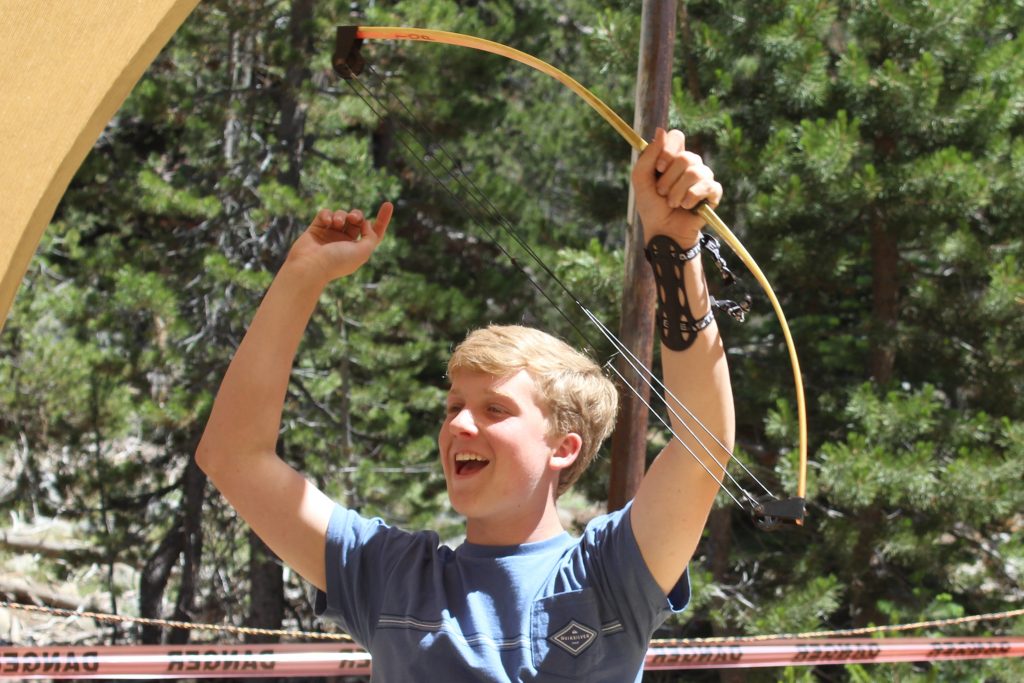 Some of that research has been supported by the American Camp Association, and I was privileged to hear one of the leaders in the field, Lance W. Ozier Ed.D. speak on this at a recent conference. He has written on the history of camps and schools (you can read it here). In that article, Dr. Ozier lays out the reasons that camp blossomed in America after the Civil War. As people moved to the cities, adults began to worry that their children were losing touch with nature, and so they sent them to live in nature. How familiar does that refrain sound to us today?
Some of that research has been supported by the American Camp Association, and I was privileged to hear one of the leaders in the field, Lance W. Ozier Ed.D. speak on this at a recent conference. He has written on the history of camps and schools (you can read it here). In that article, Dr. Ozier lays out the reasons that camp blossomed in America after the Civil War. As people moved to the cities, adults began to worry that their children were losing touch with nature, and so they sent them to live in nature. How familiar does that refrain sound to us today?
And yet the challenges for young people are even greater now than they were then. The rise of computers, social media, and cell phones has had as great a social impact as urbanization a hundred years ago. Today, camp serves not just as a way to re-engage children with nature, but as a way to help them learn vital social skills in a systematic way. We are fortunate that one of our camp owners and directors, Audrey “Sunshine” Monke, has studied the impact of camp on building social skills. Her research shows that a significant majority of campers report having improved social skills because of camp. She believes that this is because camp counselors are specifically trained in helping campers to improve skills like making friends and listening to others.
It isn’t just Sunshine that has found these results. According to research conducted by the American Camp Association, campers and their parents report that campers have more social skills, higher self-esteem, and more independence. When a child returns to school more comfortable socially, they have more confidence and are more likely to sit up front, ask questions, and ignore distractions. When they do that, they are setting themselves up for more academic success.
But wait, there’s more! Camp also provides an opportunity for children to struggle in a safe and supporting environment. At camp, we talk a lot about growing grit, a concept that has been moved into the public discussion about education by Angela Duckworth’s research. We think that grit is so important we made it our theme for an entire summer! But there is increasing research that shows how struggling actually changes the way the brain grows. This research in neuroplasticity shows that the brain grows much more when it is engaged in something difficult. So every time a camper tries to waterski another time, or climbs the rock wall, their brains are growing!
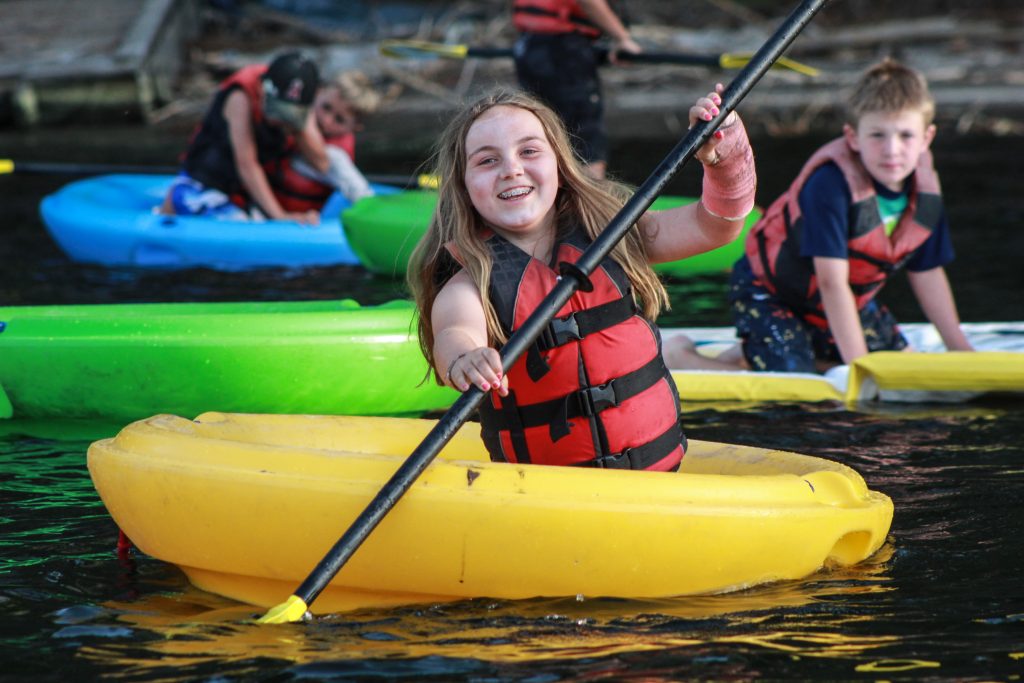 (Interestingly, that same research shows that the brain also grows more and stronger synapses, in mice at least, when they are allowed to roam openly in nature.)
(Interestingly, that same research shows that the brain also grows more and stronger synapses, in mice at least, when they are allowed to roam openly in nature.)
None of this is news to people who send their kids to camp, or those of us who work at camp. We can see anecdotally that kids are more confident and more “alive” after camp. But this research simply confirms what so many educational researchers knew in the early 1900s: going to camp when you’re not in school will help your education.
A Grateful Family Is A Happy Family: Five Gratitude Practices
Creating a grateful family culture is a challenge in our entitled, indulgent age. Yet much research has confirmed what we intuitively know – practicing gratitude and being grateful are keys to a happier life. Therefore, it’s well worth our consistent and continued effort as parents to model and teach our kids to practice gratitude. As we enter this Thanksgiving month, let’s promote gratitude in our families. After all, if we constantly dwell on what’s going wrong in our lives and in the world (and stay focused on what we don’t have), we are left feeling anxious, empty, and depressed. But when we take time to count our blessings, we shift our mindsets and become happier, more grateful people.
For those of you who would like to create a more grateful family culture, here are five family gratitude practices you might try. If your family is like most, they will likely only agree to participate in one or two of these, so choose one that resonates for you and go for it!
Daily Gratitude Sharing
Just like we do with our Highs and Lows at dinner or at camp with campers around the campfire, we can get into the habit of sharing, as a family, one (or more) things we’re grateful for. This can be at family dinner, on the car ride to school, at bedtime, or whatever time works best with your family’s schedule. Just make it a daily habit and everyone will get used to it. When we’ve tried this, it seems to eventually warrant some kind of guidelines about what types of things are “shareable.” For example, being thankful for a particular video game might be appropriate to share once, but it’s best to encourage everyone to share about people and events (rather than things) they are grateful for.
Gratitude Jar or Board
This can be an ongoing family gratitude practice, perhaps kicked off at Thanksgiving and ending on New Year’s Eve. For the jar, people jot down things they are grateful for and put the notes inside. On a specified day (end of the year is good!), empty the jar and read the notes so the whole family can reflect on individual and group blessings. A board is a more visual way to show thanks. Simply tack the notes up as you think of things you’re thankful for. Having a “minimum daily or weekly requirement” of one note per person works well, just so we make it a habit and fill up our jar or board.
Thankful “Warm Fuzzies” at Thanksgiving
This is one of my favorite activities and something we’ve done for the past few years. Each family member has an oversized place card at their dining spot. Throughout the afternoon and evening, people are required to write something they appreciate or are grateful for about each person on the inside of their place card. It can be just a few words or a whole sentence, but each person needs to write on everyone’s card. These are really fun keepsakes that provide a nice boost to each family member. This can also be done as a group by passing the cards around until each person has signed each other person’s card. When your own card gets back to you, you’ve completed your warm fuzzies!
Gratitude Journal
Ask each family member to find a journal that’s sitting empty or partially empty, or even a spiral notebook will do, and ask them to write down two or three things they are thankful for each day. If someone is feeling especially creative, they can even decorate their journal! From experience, it’s best not to force anyone to write in their journals! Sharing out loud, at dinner or bedtime (see #1), is better for kids who don’t enjoy writing. Perhaps a good alternative would be a family gratitude journal, completed by a parent or designated scribe, when everyone’s sharing what they’re grateful for. That would be similar to the gratitude jar or gratitude board.
Giving to Others
Perhaps the best way to promote gratitude in our children and ourselves is reaching out and serving others who are less fortunate. There are so many opportunities this time of year (and all year long, for that matter) to participate in collection and delivery of food, toys for children, winter coats, and more. There are so many needy people, and reaching out to help others (even virtually!) not only makes us more kind and compassionate, but also more appreciative of what we have.
There are so many ways to build up our gratitude muscles, and helping our kids learn to be more grateful people can have a life-long positive impact. Here’s to an attitude of gratitude during the holidays! Happy Thanksgiving!
Summer Camp & COVID (2022)
Audrey “Sunshine” Monke & pediatrician (and current camp doctor) Dr. Heather “Bluey” Silverberg talk about how COVID is impacting kids this summer at camp. Recorded on July 12, 2022.
Coaching Kids to Better Friendships
“Friends are everything. They are always there if you have a problem or if you get hurt, they can always help you up.”
– Patricio, Camper, Age 8
The commonly accepted trajectory of do well in school -> get into a good college -> make a lot of money -> flourish in life is not exactly accurate. You only have to know one unhappy wealthy person to know that’s not the path that will lead to happiness or fulfillment.
What is a more accurate trajectory? good interpersonal (social) skills -> positive relationships -> flourish in life.
Michael Thompson’s statement, “Friendship is the gold of childhood,” stuck with me long after I attended his conference session on the social lives of children. Friendship is not just the gold of childhood, but also of life. In my research for my Master’s degree in Psychology, I looked closely at studies related to friendship, social skills, and well-being. What I found was not surprising. For children, and adults as well, positive relationships are the best predictor of overall happiness and well-being. As parents, teachers, and counselors, we should be putting a primary emphasis on helping kids develop the social skills they need to make and keep friends.
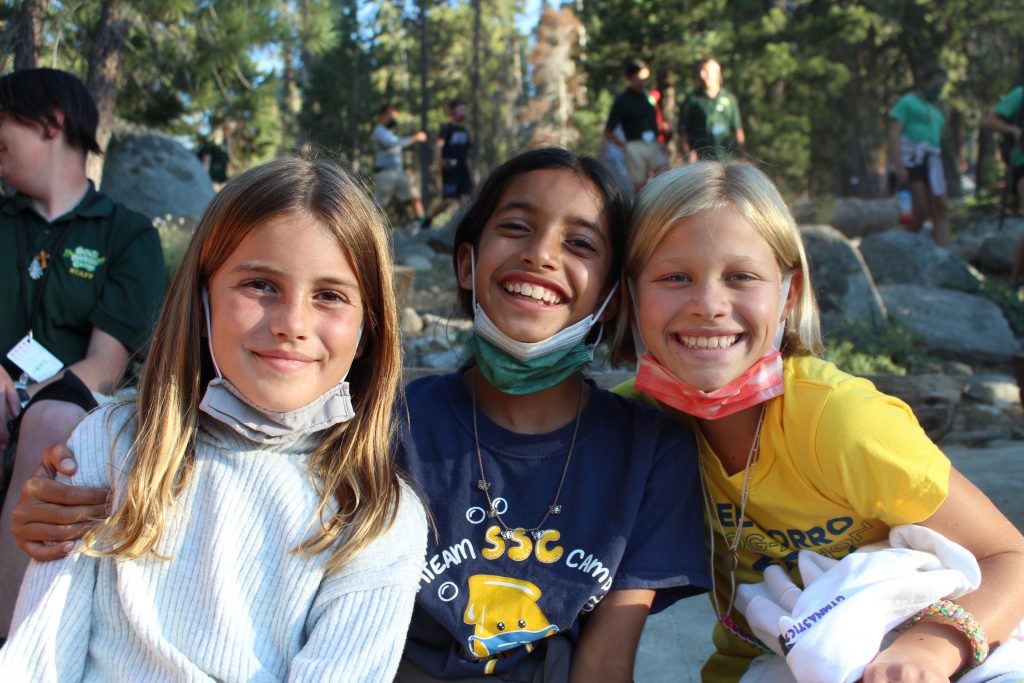
Unfortunately, our culture is not supporting the development of healthy, solid friendships between kids. Friendship is more important than any academic subject or athletic skill, and yet the way our kids spend their time does not reflect this importance. For many kids, there simply isn’t time in their lives for developing strong, close friendships.
What are our kids learning about friendship in this Instagram, Snapchat, and texting era of “friends?” Many boast hundreds, even thousands, of “friends” and “likes” on photos. Yet some of those same kids don’t have one single person in their lives that meets the criteria of a true and trusted friend. Face-to-face social skills, such as being able to read non-verbal cues, are learned through practice. If communication is primarily through media, then those skills are not being honed.
Another cultural factor that is counter-productive to the development of solid friendships is the constant, high-stakes competition our children are constantly in with their peers. Who’s ranked higher at school? Who made the “A” team? Who’s more popular? Often, instead of being truly supportive and encouraging of each other, kids want their peers to fail.
Making friends, and being a good friend, doesn’t come naturally to all people. And, coupled with the crazy culture we’re in, it’s no surprise that many kids are struggling to form strong friendships.
Friends are the reason campers and counselors return to Gold Arrow Camp year after year. “Make Friends” is one of the three main goals we chant at the opening of camp each session. At camp, there is time for friendship — precious, relaxing time to get to know each other, spend time making memories, and communicating face-to-face. Our whole camp community is built around inclusion, respect, and kindness. There is no competition at camp, no “A” team or “popular” group. Just kids having fun together and learning to live and play with each other, work out disagreements, and become better friends to each other.
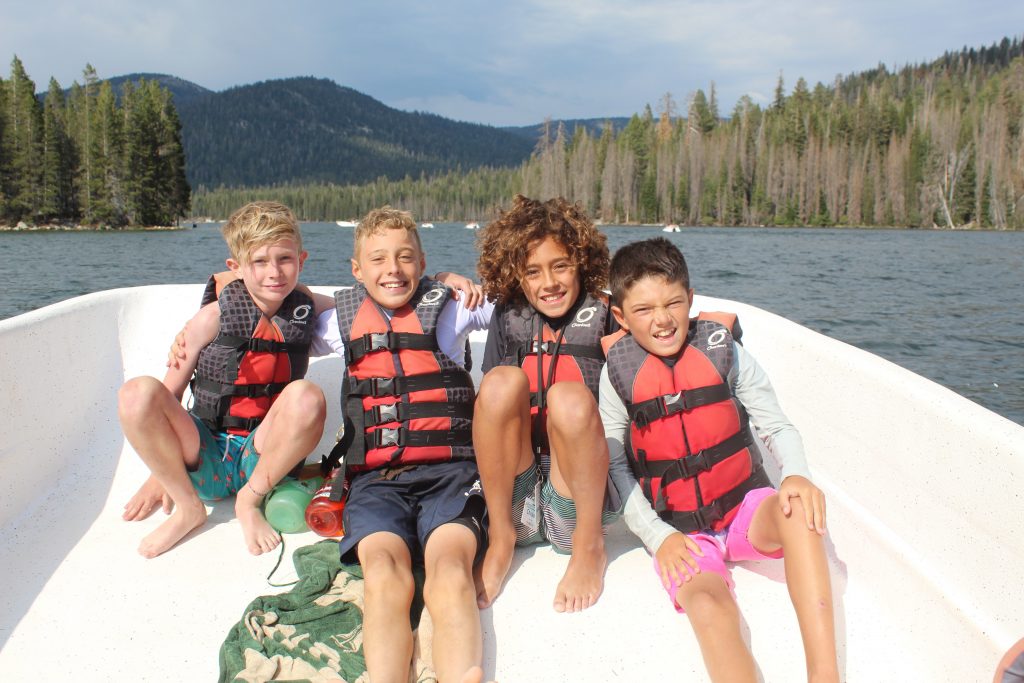
A few of the many friendship skills we focus on at GAC include:
Teaching Campers the Friendship Skill of Asking Questions
Friendship Tip: Find Your Best Calm Down Strategy
“A friend is someone you’re not afraid to be yourself with.”
– Hannah, Camper, Age 14
Counselors are trained to help kids connect from the moment they get on the bus until the last goodbye. Long talks at meals, around the campfire, and under the stars in sleeping bags are uninterrupted by cell phones and other technological distractions. Campers can’t “tune out” by putting earphones in. They stay engaged with each other and learn to connect. Counselors gently coach campers who need to develop social skills in areas such as listening skills, empathy, sharing, flexibility, initiating conversations, and understanding non-verbal cues. They encourage campers to be intentional about being good friends to each other and observant about what they appreciate about their friends.
“Friends are awesome, because they stand up for you, and they care for you.”
– Joey, Camper, Age 11
At one final campfire gathering last summer, the Randy Newman song, “You’ve Got a Friend in Me,” came on during the slide show. A group of four twelve-year-old boys sitting on the bench in front of me spontaneously put their arms around each other and started swaying back and forth, singing along to the song. I will never forget that vivid picture of the power of camp friendships.
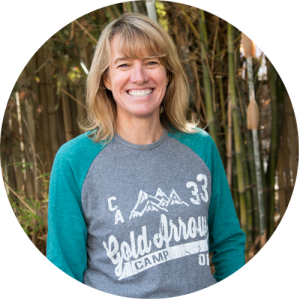
Audrey “Sunshine” Monke, MA, has been the owner of Gold Arrow Camp since 1989 and currently serves as the Chief Visionary Officer. In addition to her vision-casting and mentoring at GAC, Sunshine is an author (Happy Campers: 9 Summer Camp Secrets for Raising Kids Who Become Thriving Adults), podcast host, speaker and coach on the topics of parenting, social skills, and happiness. Find out more at her website, Sunshine Parenting.
Visit Sunshine Parenting for more friendship skills-related posts & podcast episodes.
Five Reasons Every Teen Should Go To Summer Camp
By Audrey “Sunshine” Monke. Originally published at Sunshine Parenting
#1 Improve Interpersonal Skills & Form Close Friendships
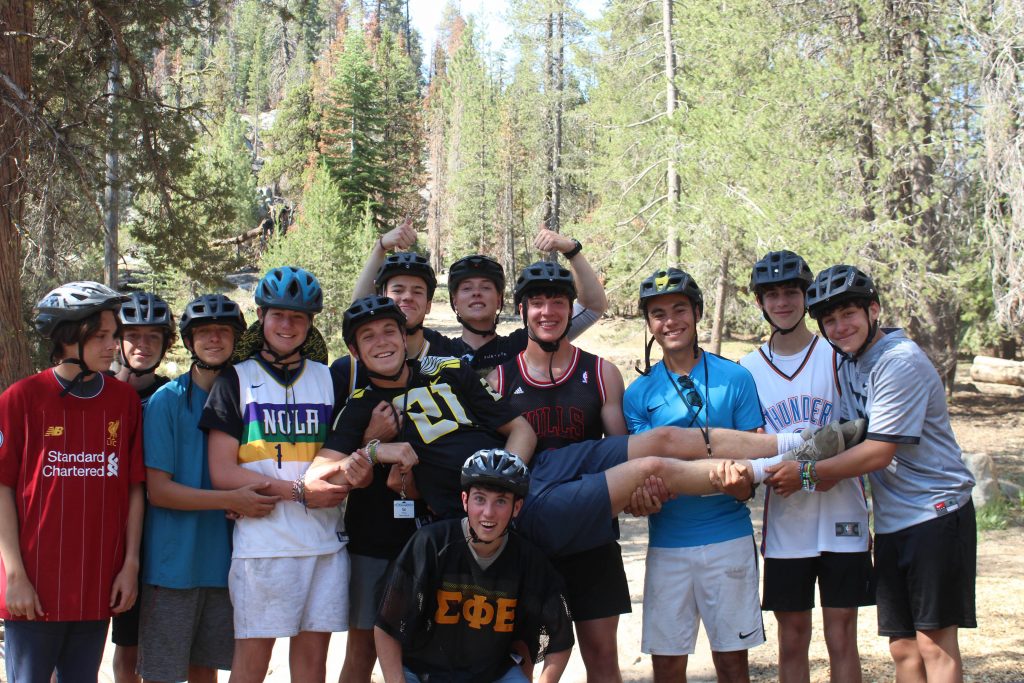
“In a … study of 515 senior executives, emotional intelligence was a better predictor of success than either relevant previous experience or high IQ.” -Forbes, “Look for Employees with High EQ over IQ”
In a world where anyone can look up a fact or equation and where machines are replacing even complex workplace tasks, employers need employees who can interact effectively with other people. This is one of the most important skills teens learn at camp. In the unplugged, non-competitive camp culture, teens build up their “emotional intelligence” (EQ), their face-to-face communication and relationship skills. 21st-century employers need people who can communicate, collaborate, and cooperate with others, and teens who come to camp get to practice those skills every day.
If you are debating whether your teen can miss a few weeks of SAT prep or a summer academic program, know that the 1600 SAT score will never outweigh the important communication and relationship skills he or she will develop at camp. Whether on a backpacking trip, cheering each other through a ropes course, or chatting around the campfire, the interpersonal skills teens build are the same ones they’ll need to be successful adults in families, communities, and companies.
#2 Take Safe Risks and Challenges
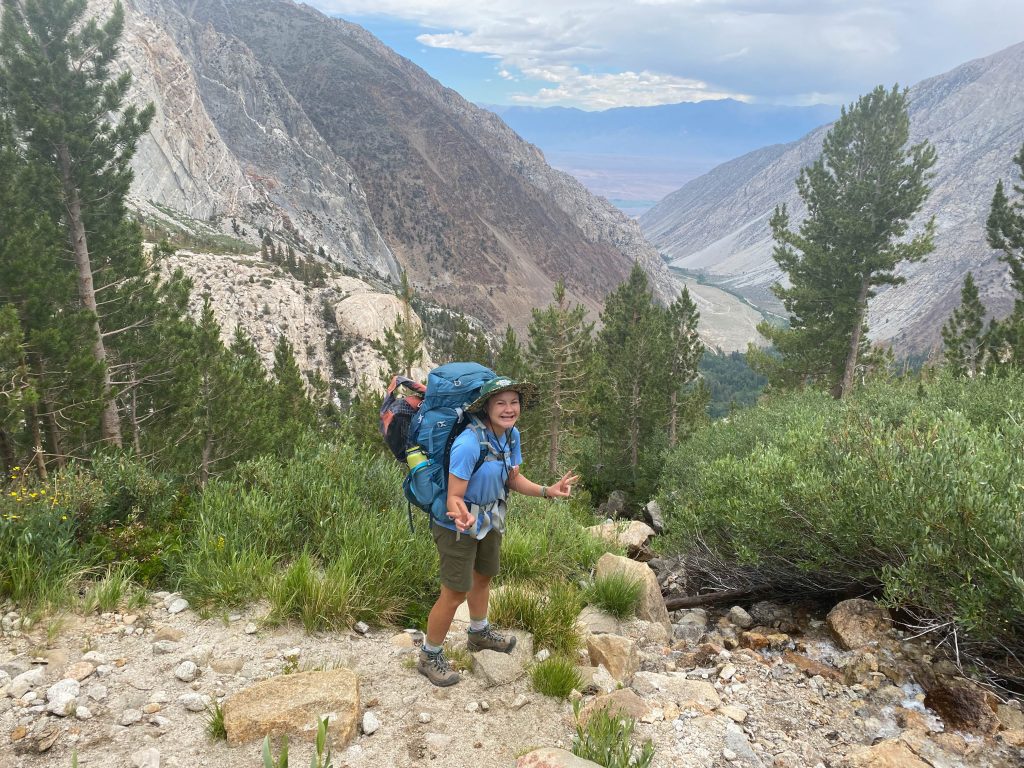
Teens thrive on risk. Thanks to recent findings (described in Age of Opportunity and Brainstorm) about the unique attributes of the teen brain, we now understand the reason for the “mortality bump” for 17-year-old boys. They do stupid, daring things not because they aren’t aware of the dangers, but because—to them—the reward of leaping from a rocky cliff or speeding along a curvy mountain road seems to outweigh the risk.
A teen at camp has the opportunity to take many safe, controlled risks. Climbing to new heights on a rock wall or ropes course, jumping the wake of a boat on a wake board, or reaching the peak of a 10,000-foot summit are all healthy risks teens take at camp. Plus, being in a controlled camp environment frees teens from exposure to health risks like alcohol and drug use.
#3 Experience Character Growth and Develop Life Skills
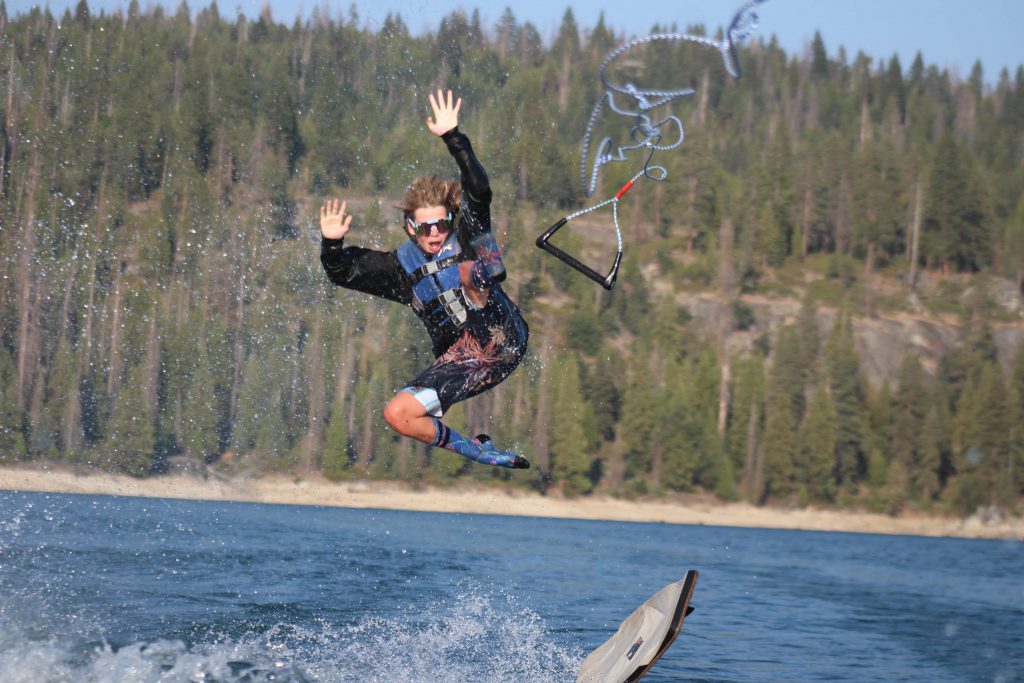
“A profound gap exists between the knowledge and skills most students learn in school and the knowledge and skills they need for success in their communities and workplaces.” –Partnership for 21st Century Skills
Schools aren’t doing a very good job teaching kids grit, perseverance, and leadership. But that’s not their job. Rather, schools are VERY busy teaching the core curriculum and assessing how well our kids know it. No school has time to see how “gritty” a kid is, but at camp, the “grit-meter” is always running, and it’s personal character—not a report card or an athletic achievement—that rises to the top.
Teens also develop other important life skills at camp, including independence, responsibility, and decision-making. Teens grow considerably in an environment away from their parents where they are forced to live on their own and find their own resources.
#4 Meet Positive Role Models
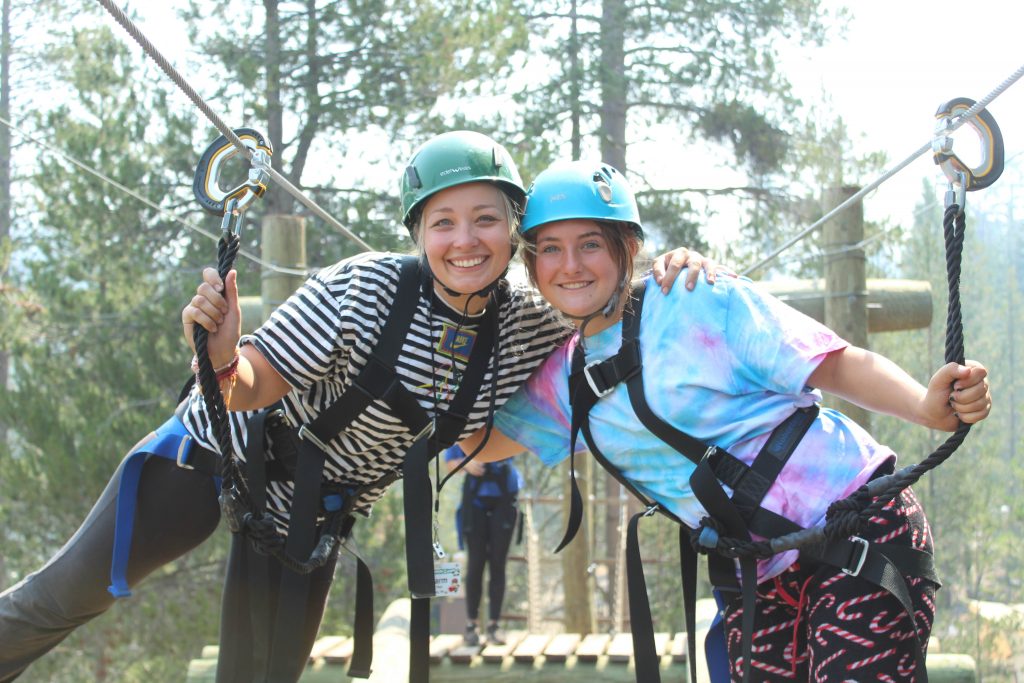
Watch or listen to a popular music video, reality TV show, or sports event, and you’ll be hard-pressed to find positive young adults teens can emulate. But walk into any well-run summer camp and you’ll be surrounded by wholesome, outdoorsy young people who like being around others and doing fun activities. Camp offers teens the opportunity to be among young adults who are positive role models and to form close relationships with them. Most camp counselors are hard-working college students who want to serve others. They are friendly, personable, and are just the kind of young adults you want your teen to become.
#5 Discover Their Best Self
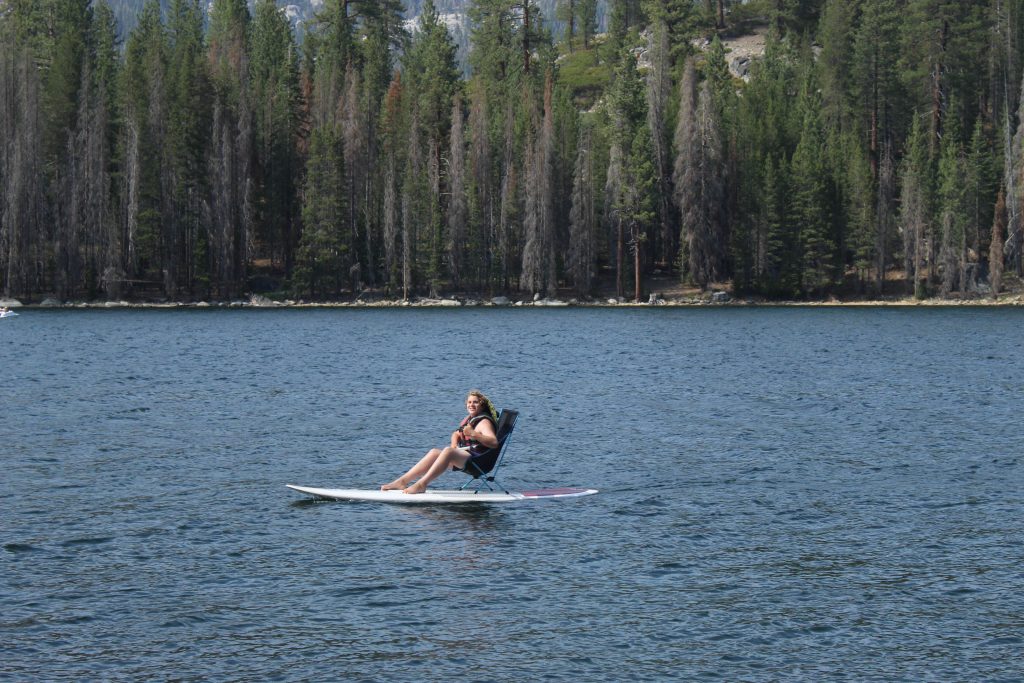
We live in a world where teens—often by their own parents—are steered towards success via the SAT, the college admissions grind, a “good” major, and a high-salary job. Look around at many adults, however, and see where that path got them. Despite knowing better, we still expose our kids to the same gauntlet.
Perhaps college education is the best option for most young people, but I’ve met many who are halfway done (or all the way done) and still don’t know who they are or what they are passionate about. Camp experiences offer teens the chance to step back from the treadmill of academics, competitive sports, and their sleep-deprived, over-scheduled existence, and instead think about what’s important to them. Many campers become less self-absorbed after spending a few weeks at camp, learning to train their focus on others. They also discover new hobbies and avenues to pursue in education and their future careers.
Each summer, tens of thousands of teens leave their phones and car keys at home and head to summer camp as campers, counselors in training, or counselors. Many teens who have never been to camp cannot relate to how a teenager could make such crazy personal sacrifices. And yet, teens are the age group that fills most quickly at many camps. Because, perhaps more than any other time during youth, camp offers the respite, recreation, and renewal to help teens thrive. Teens who have already been to camp know this and want to come back, year after year.

Gold Arrow Camp offers a Junior Counselor Program for returning GAC campers and an Outdoor Leadership Course for teens (grades 9th-11th).
Originally published at Sunshine Parenting.

Audrey “Sunshine” Monke, MA, has been the owner of Gold Arrow Camp since 1989 and currently serves as the Chief Visionary Officer. In addition to her vision-casting and mentoring at GAC, Sunshine is an author (Happy Campers: 9 Summer Camp Secrets for Raising Kids Who Become Thriving Adults), podcast host, speaker and coach on the topics of parenting, social skills, and happiness. Find out more at her website, Sunshine Parenting.
Visit Sunshine Parenting for more summer camp-related posts & podcast episodes.
The Gift of Handwritten Letters
Recently, I’ve been going through the many boxes of letters, photos, and memorabilia which I have collected over my first five decades. It’s been a time-consuming task, but I’m trying to organize into a smaller number of boxes what has been accumulated over the first half of my life. What has struck me most is the huge number of letters I amassed from my childhood, high school, and college friends. Until this week, I didn’t remember how much we corresponded, but I just finished going through hundreds of letters. I now have proof of the many friendships that were solidified over hours of writing to one another.
I mostly have the ones written to me, but I can assume from the “Thanks for your letter”s that I was writing at the same rate as my friends were. Maybe some of my letters are in a box out there somewhere?
 Not only was there a huge volume of letters (see picture), some of the letters were ten pages long, with tiny writing. Others were short notes or fun greeting cards. Most of them were in beautiful, cursive writing, even some from boys! What an amazing thing to think about. Back then, without the distractions we all have today, we had TIME to write letters like that! Plus, we enjoyed it and we were good at it! We wrote letters because often long-distance phone calls were too expensive. Many of us traveled and studied overseas, so the letters chronicle our trips.
Not only was there a huge volume of letters (see picture), some of the letters were ten pages long, with tiny writing. Others were short notes or fun greeting cards. Most of them were in beautiful, cursive writing, even some from boys! What an amazing thing to think about. Back then, without the distractions we all have today, we had TIME to write letters like that! Plus, we enjoyed it and we were good at it! We wrote letters because often long-distance phone calls were too expensive. Many of us traveled and studied overseas, so the letters chronicle our trips.
The process of trying to get rid of most of this paper required that I at least skim through each one. I pulled out many that I simply can’t bear to throw away. I found letters from my late grandparents, with their words of wisdom. I found letters my parents had written to me over the years. I also found letters from friends showing major teen angst, which is a good reminder now that I have teens of my own. We weren’t that different back then after all! It’s just that we didn’t splash our anger and sadness at each other on Facebook. We wrote each other heartfelt notes.
One thing I realized is that my kids will not have a big box of letters like mine. They don’t write letters like we did in the pre-computer, pre-email, pre-social networking, pre-cell phone era. But then I had a revelation! They DO still get to send and receive letters. It’s when they’re at camp! I have told parents how much campers enjoy getting “real” mail while at camp (the kind with a stamp), but now I have realized another benefit – they will have these letters as keepsakes and memories of their childhood. And you, as parents, most definitely should save all of the letters you get from your camper!
Among my box, I came across a postcard I sent to my parents in 1977, when I was a camper at Gold Arrow Camp. This is what it said:
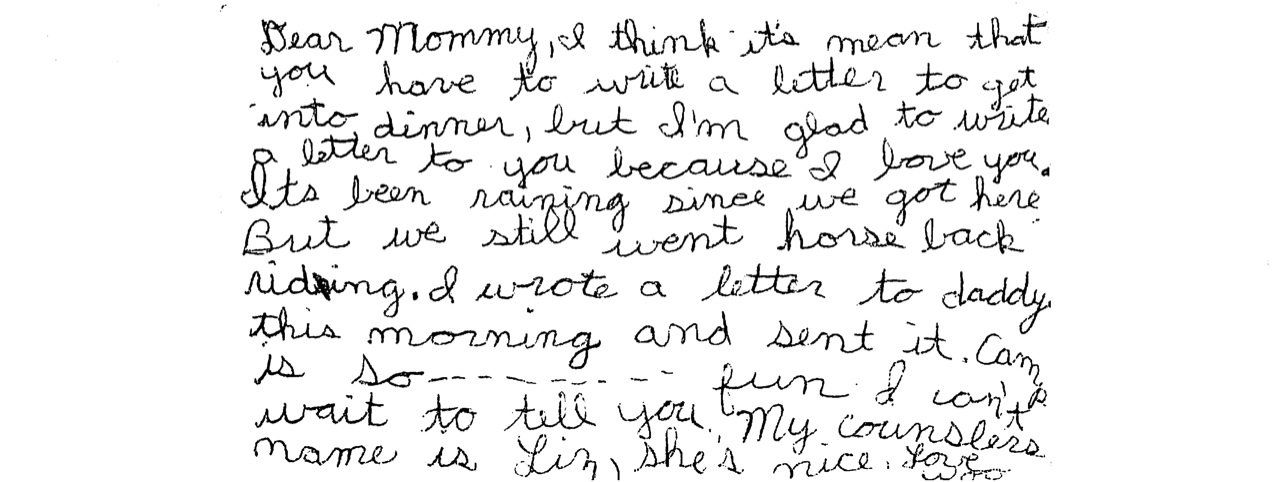
My postcard home from camp, 1977.
“Dear Mommy,
I think it’s mean that you have to write a letter to get into dinner, but I’m glad to write a letter to you because I love you. It’s been raining since we got here. But we still went horseback riding. I wrote a letter to daddy this morning and sent it. Camp is so fun. I can’t wait to tell you. My counslers name is Liz. She’s nice.
Love, Audrey”
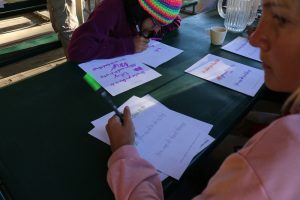 Let me tell you, we have gotten some good laughs in our house over this postcard. Not just about how I spelled “counselor,” but about my comment about the “Mail Meal” (dinners on Wednesday and Sunday that you need to have a letter or postcard home as your ticket in). The dreaded “Mail Meal” has been a camp tradition for as long as anyone can remember, but I didn’t even remember thinking it was a bad thing. My adult view is much different than my ten-year-old one! I now understand how much parents need those letters. I hope most kids get beyond the “I have to write this letter” part, and share some of their feelings and memories of camp. The resulting memorabilia will be priceless.
Let me tell you, we have gotten some good laughs in our house over this postcard. Not just about how I spelled “counselor,” but about my comment about the “Mail Meal” (dinners on Wednesday and Sunday that you need to have a letter or postcard home as your ticket in). The dreaded “Mail Meal” has been a camp tradition for as long as anyone can remember, but I didn’t even remember thinking it was a bad thing. My adult view is much different than my ten-year-old one! I now understand how much parents need those letters. I hope most kids get beyond the “I have to write this letter” part, and share some of their feelings and memories of camp. The resulting memorabilia will be priceless.
So, here’s to another benefit of camp I’ve only this week realized. We have the chance for our kids to experience the (almost) lost art of writing and receiving handwritten letters. And you, as a parent, have a chance to write down words that your child will be able to read and keep long beyond any email you’ve sent them!
P.S. Did you see this hilarious book? P.S. I Hate it Here: Letters from Camp It is full of some really funny, real letters kids wrote to their parents from camps.
4 Reasons For 2 Weeks
“Do you have a one week session?” is one of the questions we often get asked by parents who are new to our program. The question is usually preceded or followed by the comment, “Two weeks is too long for my child.”
I thought it would be helpful to outline for new parents why Gold Arrow Camp has a two-week session length as our primary camp offering. Although we also offer one-week Mini Camp programs at the end of the summer, Gold Arrow Camp’s core program is a two-week session, and that is the length of time the majority of our campers attend camp. We also have campers who are “Monthers,” who attend four weeks of camp by combining two, two-week sessions.
There are many benefits to camp, regardless of length of stay, as per this American Camp Association study. So, I urge you to find a camp that fits your family’s needs and schedule, even if Gold Arrow is not the best fit for you.
Our program, up until the 1970s, was a month-long program. Many traditional, East Coast camps still offer only one 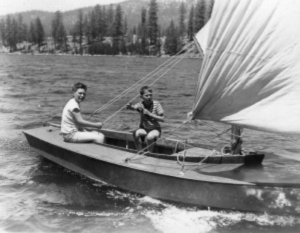 seven or eight-week session. To people in the West, this sounds crazy, as most programs on our side of the country are one-week in length. However, families who have been part of Gold Arrow and other traditional camp programs understand the benefits of a longer camp stay.
seven or eight-week session. To people in the West, this sounds crazy, as most programs on our side of the country are one-week in length. However, families who have been part of Gold Arrow and other traditional camp programs understand the benefits of a longer camp stay.
Many traditional camps in California have started offering one-week programs because that’s what many parents think they want for their child. Fortunately, our camp families have kept our two-week sessions consistently full, so we will continue to offer what we consider the best length for our program.
Why does Gold Arrow Camp have two-week sessions?
Here are four reasons:
Community and Friendship Building
Breadth and Depth of Activities
Social Skill Development
Independence and Confidence Building
1. Community and Friendship Building
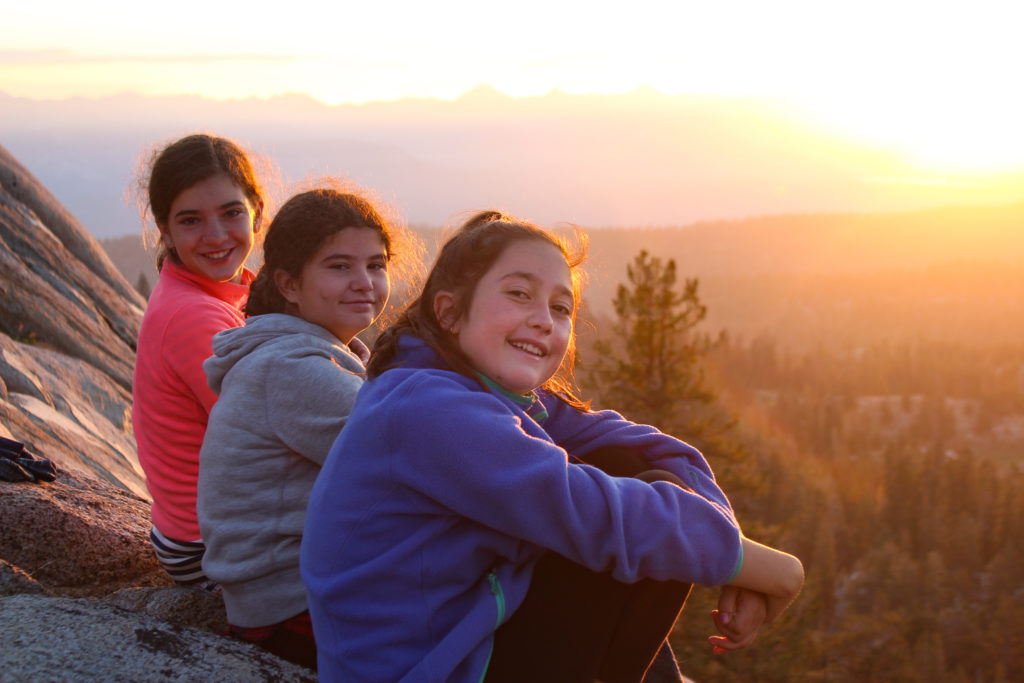
“My son has no fears about making friends at his new school because of the experiences he has at GAC. His self-confidence and outgoing nature are so nurtured at GAC that he feels prepared for anything!” – GAC Parent
While a lot of fun happens during even just one day of camp, spending more time connecting and building bonds with counselors, cabin mates, and other campers is one of the benefits of a two-week stay.
The first week of the session, there is an adjustment period for the first few days, when campers are getting settled and getting to know one another, the schedule, and the activities. By the middle of the first week, campers feel settled and comfortable at camp, and relationships have the opportunity to start getting deeper. Friendships, while they can definitely be formed in one week, have a better chance to grow stronger and deeper with more connection time.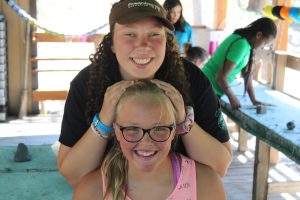
“My children lead busy lives during the school year with various teams and enrichment programs. Going to Gold Arrow Camp allows them to unwind and gain a new perspective on friendship, goals and life. From my perspective, GAC is summer the way it is supposed to be for kids. Thank you!!” – GAC Parent
Because all of the campers in the cabin group are at camp for the same length of time (two weeks), there are no departures and arrivals in the middle of the session to disrupt the group’s cohesiveness and the bonds that have developed. Everyone arrives together and departs together, with the exception of our Monther campers, who stay on for another session after their first two-weeks end.
2. Breadth and Depth of Activities
“My son came to Gold Arrow for the first time not knowing any of his cabin-mates. By the end of his two week session, he had made great friends and wanted me to ensure he could be in the same cabin with them next summer. He had a wonderful time at all the activities, but the stories he tells most are the ones involving fun with his new friends.” – GAC Parent
We take advantage of our location on Huntington Lake, in the heart of the Sierra National Forest, by teaching campers a large variety of water and land-based recreational activities. Many of our activities require extensive time and instruction. Sailing, as an example, is an activity that begins with a 2 ½ hour group lesson, and can be followed up by many additional lessons as campers opt for more sailing during Free Time. Without adequate time, it would be impossible for campers to even get to all of the activities we offer, let alone build skills in them. We want our campers to get exposure to all of what is offered at camp, and have the opportunity to pursue activities they are passionate about.
During their two weeks at Gold Arrow, campers have the opportunity to learn to sail, ride a horse, shoot a rifle, get up 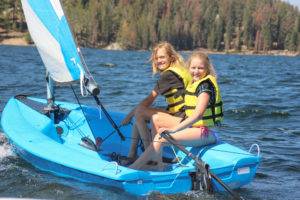 on water skis, and participate in a myriad of other activities. Many of these sports require time and practice to master. For first-time campers, two weeks is just enough time to expose them to all of the different activities and start practicing and improving skills. Returning campers continue to build upon and develop new skills, even after five or six years at our program. The depth of instruction offered, the opportunity to improve recreational skills, and the ability to earn different patches all distinguish Gold Arrow Camp’s program.
on water skis, and participate in a myriad of other activities. Many of these sports require time and practice to master. For first-time campers, two weeks is just enough time to expose them to all of the different activities and start practicing and improving skills. Returning campers continue to build upon and develop new skills, even after five or six years at our program. The depth of instruction offered, the opportunity to improve recreational skills, and the ability to earn different patches all distinguish Gold Arrow Camp’s program.
We have two outpost programs, away from our main camp, that take up a portion of the two-week session. We have a water sports outpost camp on an island on Shaver Lake where campers enjoy one or two nights camping on the beach. At Shaver Island, campers spend their days on the lake improving their skills in waterskiing, wakeboarding, and kneeboarding. While these sports are also done at our main camp on Huntington Lake, their stay at Shaver allows our two-week campers time to really improve their skills with a lot of “behind the boat” time. Our other outpost program is backpacking. All campers go on a one-night overnight backpacking trip and get to experience outdoor cooking, sleeping under the stars, and living in nature. There are some activities that we wait to do until the second week of camp, when campers are feeling connected and more comfortable taking risks.
Honestly, even two weeks seems short to us. We barely get campers to all of our activities, and it’s time for them to go home!
3. Social Skills Development
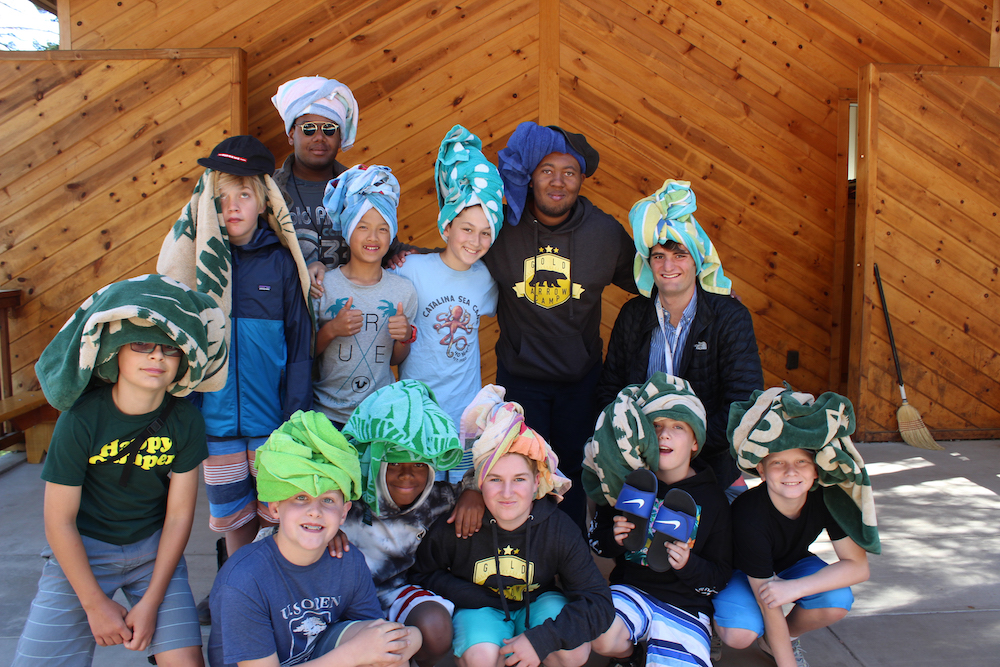
“Wonderful camp where my kids grew up and will have fond childhood memories. They both went from being scared and unsure their first summer, to loving camp at age 14 and wishing they could come back! I love the electronics-free policy – it is much needed, especially in this day and age, where kids and teens can enjoy the outdoors, making friends and having fun in the beautiful mountains!” – GAC Parent
Kids benefit from experiences living and working in groups regardless of the length of time. However, I believe that allowing a group to really bond and connect also allows kids to grow their communication, teamwork, and conflict resolution skills more than when they are in a shorter-term program.
4. Independence and Confidence Building
“My son had no idea what he was going to as he had never been to an out of town camp before let alone away from me for 2 whole weeks. When he returned, yes he was tired but he had the time of his life! He wrote me half way through his stay at GAC and told me “this place is magical and awesome!” I am hoping to be able to send him next year as well. What a great experience for my 8 yr old son!!!” -GAC Parent
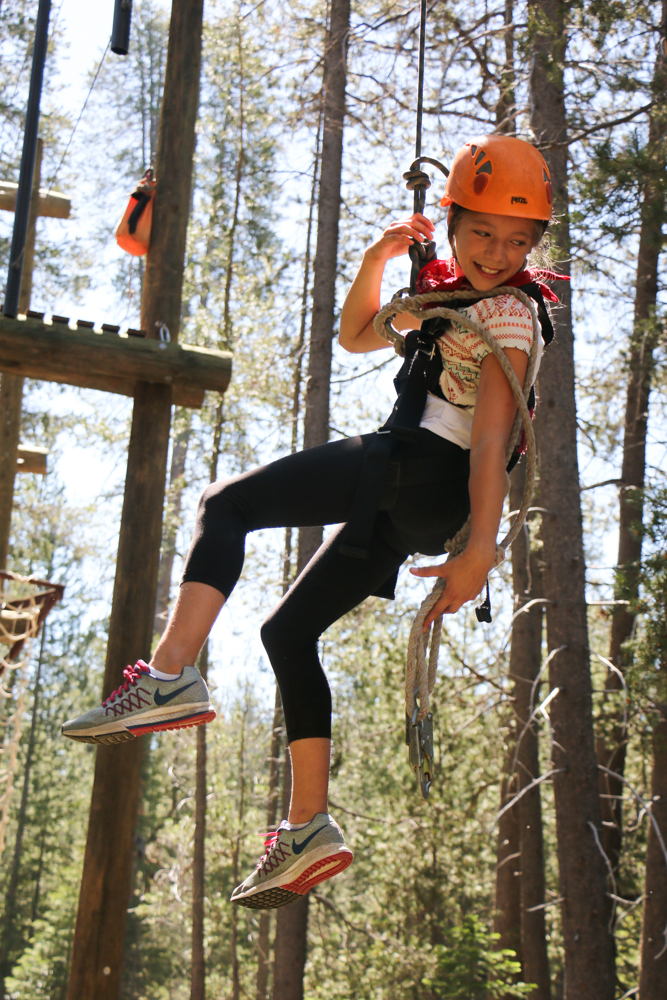 For many kids, their stay at camp is the first time that they have ever been away from their parents at all. Some have attended sleep-overs, weekend scout camps, or week-long school programs, but for many campers, their first stay at Gold Arrow is the longest they’ve been away from their parents. We know this, and our counselors are trained to help first-time campers get adjusted to being away and learn to cope with feelings of missing their parents.
For many kids, their stay at camp is the first time that they have ever been away from their parents at all. Some have attended sleep-overs, weekend scout camps, or week-long school programs, but for many campers, their first stay at Gold Arrow is the longest they’ve been away from their parents. We know this, and our counselors are trained to help first-time campers get adjusted to being away and learn to cope with feelings of missing their parents.
Campers feel a great sense of pride in themselves after “being on their own,” and having fun, without mom or dad nearby. While two weeks seem slow to parents, especially during their first camp experience, the days fly by at Camp.
“Our daughter always comes back from Gold Arrow the truest version of herself.” – GAC Parent
3 Ways To Make Family Dinner Like A Campfire
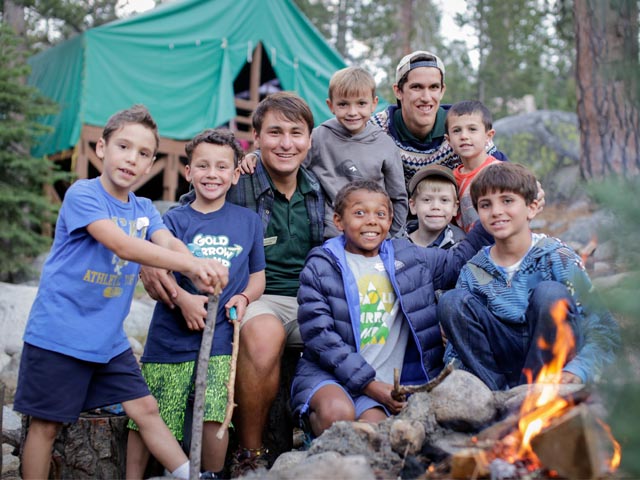
Most of us know the importance of family dinners:
Kids who regularly eat dinner with their families are more emotionally stable, are less likely to abuse drugs and alcohol, get better grades, have fewer depressive symptoms, and are less inclined to obesity or eating disorders.
It’s certainly a compelling list. But what can you do if your family dinner isn’t that great? If people just “eat and run” or don’t really connect? One answer might be turning your dinner table into a campfire pit. Not literally, of course, but group campfires at summer camp offer a great example of fun, engaging activities that have helped make dinners at our house last longer than the ten minutes it takes my boys to shovel down their food.
Here are some ideas:
Sharing highs, lows, and “gratitudes” (I know that’s not a real word, but that’s what we use)
One way we’ve found to get everyone talking and contributing at our dinner table is consistent sharing time. We find out what’s going on in our kids’ lives (and in the lives of unsuspecting visiting friends) and we as parents share what’s going on in ours. For children who are quieter and generally don’t “take the floor” as often, this consistent discussion helps them open up. And for those who don’t naturally focus on the good things, it helps them see the positive in their day.
Around the campfire, it’s an activity called “High & Lows,” or—as it’s now evolved in our family—“Highs, Lows, and Gratitudes.” It’s very simple: Each person has a turn (uninterrupted, with everyone focused on that one person) to share
• their HIGH point of the day,
• their LOW point of the day, and
• their GRATITUDE—what they’re feeling grateful for.
For a twist, we sometimes make rules for sharing: a “high” might be limited to three words, or a “low” might have a one word limit. It creates a fun challenge and makes us think. If we can’t come up with a low, we share another high.
Sometimes, we interrupt, tell long stories, or go off on tangents, but that’s okay. We’re connecting, sharing, and discovering what’s happening in each other’s lives. Our dinners last much longer than ten minutes, and our kids know they won’t be excused until everyone shares.
In The Whole-Brain Child, Daniel Siegel and Tina Payne Bryson write about the importance of getting kids to remember their stories. So, instead of asking “How was your day?” which invariably gets a one-word response, they recommend asking “What was the best part of your day?” and “What was your not-the-best part?” Sounds like a high and low of the day to me!
Question or topic of the night
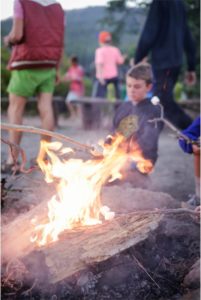 There are so many fun books and table games available, but you can probably just take turns thinking up a fun question for each person to answer, much like counselors do around a campfire. For my birthday a few weeks ago, a friend who knows me well gave me Q & A a day for Kids by Betsy Franco, which has 365 questions (one for each day) to discuss with your kids. We also have used The Enchanted Table (by Memorable Mealtimes) and Table Topics, a box of questions that our kids like taking turns reading.
There are so many fun books and table games available, but you can probably just take turns thinking up a fun question for each person to answer, much like counselors do around a campfire. For my birthday a few weeks ago, a friend who knows me well gave me Q & A a day for Kids by Betsy Franco, which has 365 questions (one for each day) to discuss with your kids. We also have used The Enchanted Table (by Memorable Mealtimes) and Table Topics, a box of questions that our kids like taking turns reading.
Family Meeting (once per week)
At camp, we always start the session with what we call our “First Night Campfire.” The counselor has a specific agenda for the campfire, which includes all the kids getting to know each other, sharing a goal they have for camp, and what guidelines they want to live by during their two-week stay. Families need to do the same kind of checking in with one other, so—once a week—we have a “Family Meeting” during dinner. We have an agenda that’s on a legal pad next to the table, and we take turns being the “chair” of the meeting.
On our agenda:
• What’s going on this week? We talk about the schedule for the coming week (any big projects/assignments due, any events, parents going anywhere)
• Goal for the week: Each person shares a goal for the week (something we want to get done, do better, etc.)
• A value or social skill we want to talk about. These have been focused on social skills for the past year in our house, and we’ve talked about things like looking someone in the eye while meeting them and how to chat with an adult. We’ve also used this printable (“10 Social Manners for Kids” from iMom) for several topics. Lately, it’s been a contest to see who can remember all ten!
We’ll hold fast to our family dinner time as long as we have kids in the house; I know it will be over far too soon. In the whirl of the last four years, our family group of seven has dwindled to the “final four”: me, my husband, and our two youngest. The meals we share are nothing like June Cleaver’s pot roast, and they often involve my awesome husband cooking or picking up something easy to eat or make. It’s rarely a big production, but it’s still really big. When we are gathered around our table eating and talking—with no phones or tablets in sight—it doesn’t matter if we have a home-cooked meal or a Panda bowl; as long as we’re connecting and sharing, it’s the biggest and best part—it’s our HIGH point—of the day.
All we’re missing is the campfire.
Originally published at Sunshine Parenting.

Audrey “Sunshine” Monke, MA, has been the owner of Gold Arrow Camp since 1989 and currently serves as the Chief Visionary Officer. In addition to her vision-casting and mentoring at GAC, Sunshine is an author (Happy Campers: 9 Summer Camp Secrets for Raising Kids Who Become Thriving Adults), podcast host, speaker and coach on the topics of parenting, social skills, and happiness. Find out more at her website, Sunshine Parenting.

